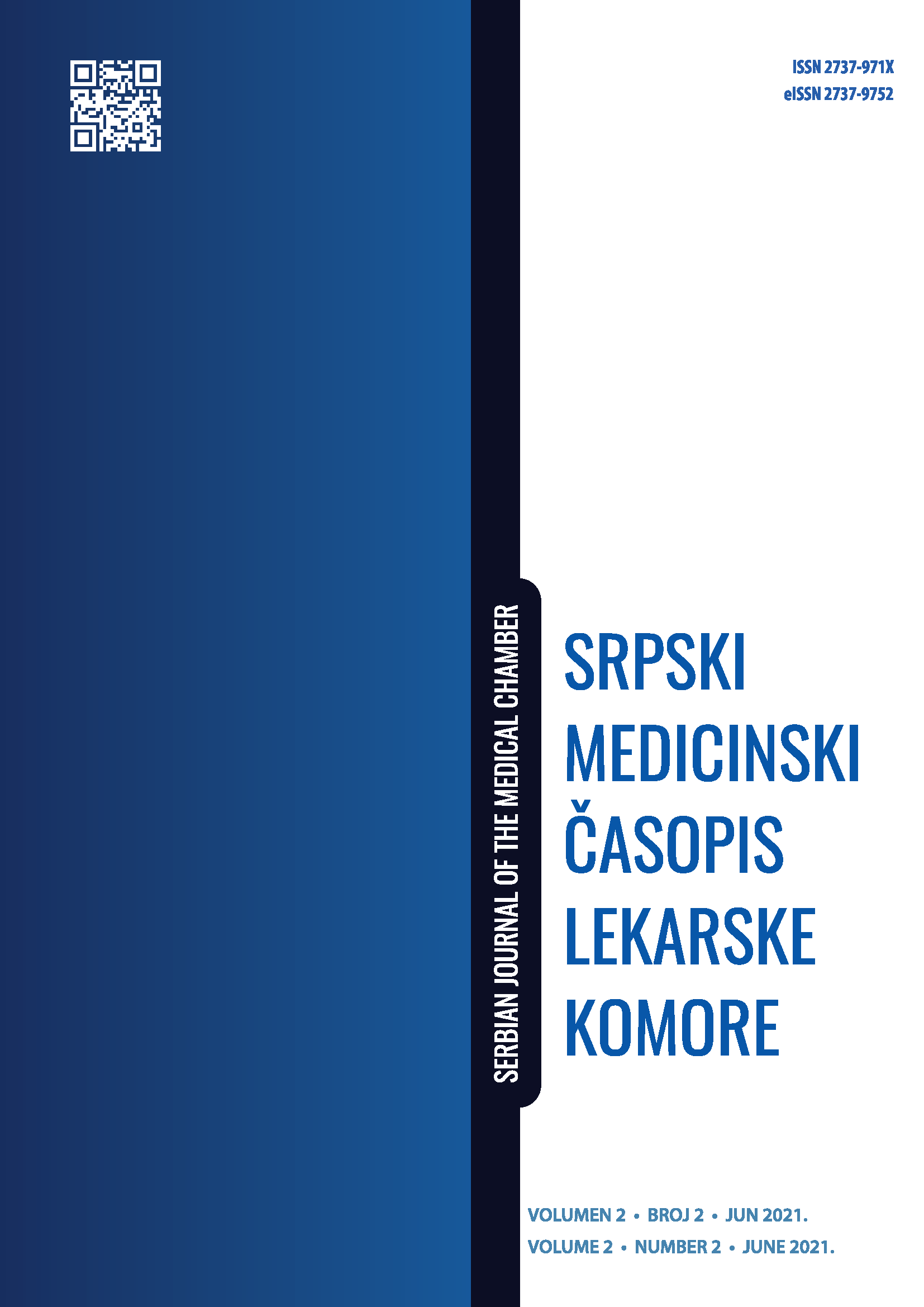Cytomegalovirus reactivation in patients treated with allogeneic hematopoietic stem cell transplantation
Abstract
Introduction/Aim: Opportunistic CMV reactivation is the most common viral complication after allogeneic hematopoietic stem cell transplantation (allo HSCT). The aim of our study is to evaluate the frequency of CMV reactivation in relation to the serostatus od the donor and the recipient and the correlation with the day of leukocytes and trombocytes engraftment. We compared the frequency of CMV reactivation in myeloablative conditioning (MAC) or reduced intensity conditioning (RIC) and match related donor (MRD) and match unrelated donor (MUD) alloHSCT. We analyzed if CMV reactivation affected the overall survival (OS) after allo SCT.
Methods: In a retrospective cohort study, we inspected 42 patients over 18 years old, who were treated at the Clinic for Hematology University clinical center od Serbia from december 2017. to november 2019.
Results: Most CMV reactivations were noticed if the recipient (R) was seropositive and the donor (D) was seronegative (R+/D- = 60.0%). Number of CMV DNA copies corelated with the day of engraftment of leukocytes (p=0.031). Frequency of reactivation in patients treated with RIC was 25.0% and 63.5% if they were treated with MAC. The intensity of conditioning regimen corelated with the number of CMV DNA (p=0.025%). There was no corelation found between MRD/MUD transplantation and CMV reactivation (p=0.515). OS after alloHSCT was 36.39±5.30 months. Mean of OS in patients with CMV reactivation was 7.39±0.853 months, but we didn't prove that CMV reactivation impacted OS (p=0.399).
Conclusion: CMV reactivation was most common in the R+/D- group. CMV reactivation doesn't affect OS after alloHSCT in our group of patients.
Key words: allogeneic hematopoietic stem cell transplantation, CMV reactivation, prognosis

